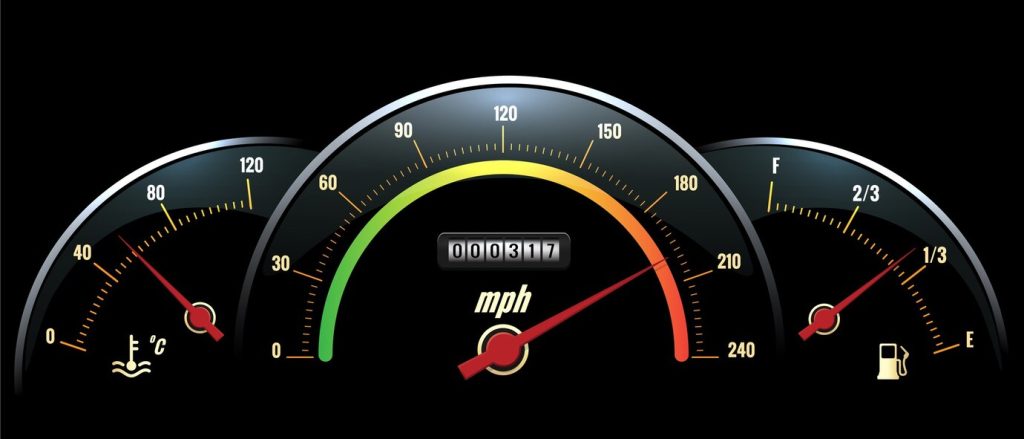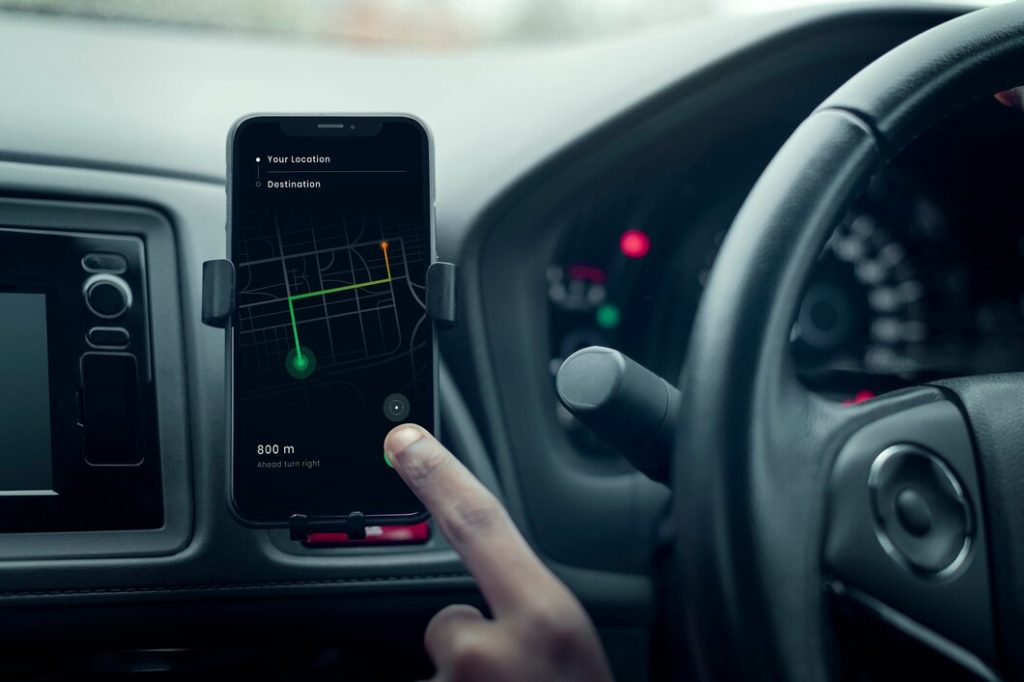In the world of car rentals, one question looms prominently: Do Rental Cars Check Mileage? This inquiry delves into the meticulous scrutiny rental companies apply to the distances covered by their fleet. Mileage limits, explicitly stated in rental agreements, serve as a fundamental parameter, guiding the terms of use. Exceeding these limits can trigger additional charges, making the tracking of mileage a critical practice. The process involves recording the initial mileage before rental and thorough inspections upon return. Technology, including GPS, aids in accurate monitoring. As customers, understanding and adhering to these policies becomes paramount to avoid unforeseen penalties.
Table of contents
- Do Rental Cars Check Mileage?
- why rental companies monitor the mileage
- Purpose of Mileage Checks
- Mileage Limits and Rental Agreements
- Monitoring Mileage for Fair Usage
- Calculating Mileage Fees
- Pre-Rental Mileage Record
- Return Inspection Process
- Technology in Mileage Tracking
- Communication of Mileage Policies
- Customer Awareness and Compliance
- Conclusion
- FAQ’S
Do Rental Cars Check Mileage?
Yes, car rental undergo meticulous mileage checks. As part of the standard procedure, rental companies record the initial mileage before the vehicle is rented out. Upon return, the car undergoes a comprehensive inspection, including a verification of the odometer reading. Exceeding the agreed-upon mileage limit specified in the rental agreement may result in additional charges. This practice ensures transparency, preventing misuse and promoting fair usage. Advances in technology, such as GPS tracking, enhance the accuracy of mileage monitoring. Renters should be aware of these checks, adhere to mileage limits, and review rental agreements to avoid unexpected fees.
why rental companies monitor the mileage
Rental companies meticulously monitor mileage for several key reasons. Firstly, it ensures fair usage of their vehicles within the stipulated rental agreements. Mileage limits act as a benchmark, preventing excessive wear and tear on the cars. This practice also facilitates accurate billing, as rental rates often correlate with the distance covered. Additionally, monitoring mileage helps companies manage their fleet’s maintenance schedule effectively, ensuring vehicles remain in optimal condition for subsequent rentals. From a logistical standpoint, it aids in tracking the location of vehicles and contributes to overall operational efficiency. Overall, the careful scrutiny of mileage aligns with both financial prudence and operational integrity for rental companies.

Purpose of Mileage Checks
The purpose of mileage checks in rental cars is multifaceted. Firstly, it ensures compliance with agreed-upon terms in rental agreements, preventing misuse and maintaining fair usage. Tracking mileage is instrumental in calculating additional charges for exceeding stipulated limits, contributing to transparent billing practices. This practice also aids rental companies in managing the wear and tear on their vehicles, allowing for timely maintenance and upkeep. From a logistical perspective, mileage checks enable efficient fleet management, helping companies monitor the location and condition of their cars. Overall, the primary purposes include customer accountability, financial transparency, and the optimal management of rental fleets.
Mileage Limits and Rental Agreements

Mileage limits in rental agreements establish the maximum distance renters can cover during the lease period without incurring additional charges. Typically expressed as a daily cap or total for the entire rental, these limits vary among rental companies and vehicle classes. Understanding and adhering to these limits is crucial, as surpassing them may result in fees. Rental agreements explicitly outline these terms, offering transparency about usage expectations. Some agreements may provide options for unlimited mileage, often associated with higher rental rates. Clear comprehension of mileage limits is essential for renters to manage costs effectively and comply with the terms of their agreement.
Monitoring Mileage for Fair Usage
Monitoring mileage for fair usage is a pivotal practice employed by rental companies to ensure equitable and responsible utilization of their vehicles. By setting mileage limits in rental agreements, companies aim to strike a balance between accommodating renters’ needs and preserving the condition of their fleet. This monitoring process prevents excessive wear and tear on vehicles, promoting longevity and minimizing maintenance costs. Fair usage practices also contribute to an equitable billing system, where additional charges are applied only when renters surpass agreed-upon mileage limits. Ultimately, this approach maintains a harmonious relationship between renters and rental companies, fostering transparency and responsible vehicle use.
Calculating Mileage Fees
Calculating mileage fees in car rentals involves a straightforward process based on the distance a renter exceeds the agreed-upon limits in the rental agreement. Typically expressed in cents per mile, these fees are applied to the total excess mileage upon return. This method ensures transparency in billing and aligns with the principle of fair usage. Renters can anticipate these charges by reviewing the terms of their agreement and monitoring their mileage throughout the rental period. Understanding the calculation of mileage fees is essential for budgeting purposes and aids in promoting conscientious vehicle use to avoid additional costs.

Pre-Rental Mileage Record
The pre-rental mileage record is a crucial step in the rental process, marking the initial odometer reading before a customer takes possession of the vehicle. This practice serves as a baseline, documenting the starting point of the car’s mileage for both the rental company and the renter. By recording this information, rental companies establish a clear reference for calculating the distance traveled during the rental period. It enhances transparency and ensures accurate tracking of mileage, helping to determine whether renters adhere to the agreed-upon limits. The pre-rental mileage record is a fundamental component of the rental agreement, providing a fair and verifiable starting point for both parties.
Return Inspection Process
The return inspection process in car rentals is a meticulous assessment conducted when customers return vehicles. It involves a thorough examination of the car’s condition, ensuring it aligns with the pre-rental state. Central to this process is the scrutiny of the odometer reading, recording the final mileage accumulated during the rental period. This crucial step allows rental companies to calculate any excess mileage beyond agreed limits, potentially leading to additional charges. The return inspection process is integral for transparency, accurately reflecting the vehicle’s use, and plays a pivotal role in finalizing the rental agreement, providing both parties with a fair assessment of the vehicle’s condition and mileage.
Technology in Mileage Tracking
Technology plays a vital role in modern mileage tracking within the car rental industry. Global Positioning System (GPS) technology is commonly utilized to precisely monitor a vehicle’s location and calculate the distance traveled. This ensures accurate mileage tracking, providing rental companies with real-time data on the usage of their fleet. Advanced systems also enable automated recording of mileage, streamlining the process for both the company and the renter. Integrating technology into mileage tracking not only enhances accuracy but also contributes to efficient fleet management, allowing companies to optimize maintenance schedules and improve overall operational effectiveness in the dynamic realm of car rentals.

Communication of Mileage Policies
Effective communication of mileage policies is paramount in the car rental industry to ensure a transparent and smooth experience for customers. Do Rental Cars Check Mileage? Rental companies typically articulate their mileage policies clearly in the rental agreement, providing details on limits, associated fees, and any available options, such as unlimited mileage plans. Clear and accessible communication of these policies at the time of rental reservation and vehicle pickup ensures that customers are aware of their responsibilities. It fosters customer understanding, compliance, and a positive rental experience by preventing surprises and facilitating adherence to agreed-upon terms.
Customer Awareness and Compliance
Customer awareness and compliance with mileage policies are pivotal aspects of a smooth and transparent car rental experience. It begins with customers familiarizing themselves with the terms outlined in the rental agreement, including mileage limits and associated fees. Do Rental Cars Check Mileage? Maintaining awareness of these policies ensures renters can manage their usage within agreed-upon limits, minimizing the risk of unexpected charges. Effective communication from rental companies, both during the reservation process and at vehicle pickup, contributes to heightened customer awareness. Compliance with mileage restrictions demonstrates responsible vehicle use, fostering a positive relationship between renters and rental companies and enhancing the overall rental experience.
Conclusion
In conclusion, the meticulous tracking of mileage in car rentals serves as a crucial component of fair and transparent practices within the industry. Mileage limits, clearly outlined in rental agreements, act as a measure to prevent misuse, promote responsible vehicle usage, and ensure equitable billing. The pre-rental mileage record and return inspection process, coupled with technological advancements, contribute to accurate tracking and efficient fleet management. Effective communication of mileage policies fosters customer awareness and compliance, ultimately shaping a positive rental experience. Do Rental Cars Check Mileage? Understanding and adhering to these practices not only help renters avoid additional charges but also contribute to a harmonious relationship between customers and rental companies, ensuring a mutually beneficial transaction.
Read More Can I Rent a Car in NY?
FAQ’S
Yes, additional fees are applied if you surpass the agreed-upon mileage limits in your rental agreement.
Some rental plans offer unlimited mileage, often at a higher rate. Check with the rental company for availability and pricing.
Mileage fees are typically calculated based on the excess distance traveled beyond the agreed-upon limits, often expressed in cents per mile.

Hi, I’m John wick a big fan of luxury cars and a wordsmith by passion. I love exploring the elegance, cool tech, and the thrill of driving in these fancy rides. Join me in discovering the stories behind these amazing machines as I share my excitement and insights about the world of luxury automobiles. Let’s take a ride together through the fascinating world of cars!

